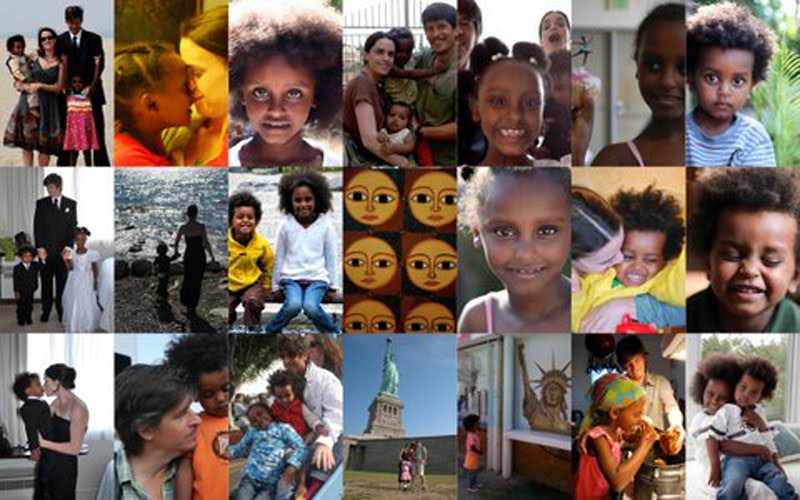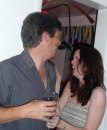
As the only freshman to be invited into Stan Kano’s Honors English class (full of vigorous conversation about novels), I was shiny with pride. At last I was on the edge of the circle that included my older sister, someone I actually wanted to be but at least was thrilled to be around. Stan roared with a great belly laugh when any of us had an opinion that was outrageous but well-supported. He encouraged me to take risks in my writing—not play it safe—and to quit using the word “it.” I took umbrage at all the red-pen marks on my papers, but now I know he did me the favor of being a tough editor and critic.
I headed off to Monmouth College to be an English major. But I was only seventeen when I dived into a sophomore level course in Old English Literature—and promptly switched my major to psychology. Still, I enrolled in creative writing as many times as the college would let me, and I emerged from my early academic years thinking of myself as A Writer…only with no idea how to get a book published, no clue about how to craft the plot of a novel, no practice in deep-to-the-bones revision, and no guess that one day I would long to write a picture book.
Having children changed all that.

My early story ideas were drawn from my children’s lives. Some of those ideas did eventually turn into books, although not before ten years of rejection letters, which led to my giving myself an immense, lengthy course in really becoming a writer. The initial idea for Do Kangaroos Wear Seatbelts? popped into my head as I zipped and buttoned and buckled in my toddlers. (Ironically, it didn’t get published until I had my first baby granddaughter.) Rain Romp, my hymn to family love--even when we don’t want to get up, even when we’re having grouchy days—was inspired by my six-year-old daughter but didn’t click together until she was in middle school and our family was living in a FEMA trailer after the Red River flood of 1997.

In those years when I was slogging the path toward becoming a published author…convinced that Americans weren’t interested in the world outside of their noses…tired of feeling like an outsider…I rarely talked about Ethiopia with anyone. But, to my astonishment, in 1994 I was given the gift of my voice. Fire on the Mountain was published by Simon & Schuster, illustrated in moving and memorable scenes by an artist who had never published a book before, and chosen as a Book of the Month Club alternate selection.

I had discovered that by writing picture books and, later, novels for young readers, I could offer glimpses of what I knew best and cared about most when I was a young reader. Luckily for me, in those days librarians and teachers were asking for (and had budgets to buy) books that showed the lives of children in other countries. So editors, one by one, agreed to bring my Ethiopia-connected stories into the world: retellings of Ethiopian folktales (re-cast with the children of my childhood)--Fire on the Mountain, Pulling the Lion’s Tail, Trouble-- my contemporary stories—Only a Pigeon, Faraway Home, Water Hole Waiting, Jakarta Missing--my historical fiction—The Storyteller’s Beads, Saba: Under the Hyena’s Foot—even a fantasy novel that drew heavily on my memories of Ethiopia, The Feverbird’s Claw.
Here are answers to a reader’s (Cindy's) questions about Trouble.


1.) "Tef" and "hyenas" are things I've learned to associate with Ethiopia and both are noticeably absent in Trouble. Did you have any experience or run-ins with hyenas growing up in Ethiopia?
I fell asleep listening to the weird cries of hyenas almost every night in Addis Ababa—where I lived on what was then the outskirts of the city--and captured that memory in Faraway Home. Outside the city of Harrar, I long ago watched the Hyena Man feed hyenas at dusk (something my granddaughter also did last summer). And I used real stories of hyena encounters (though not my own) in Saba: Under the Hyena’s Foot. Although I usually ate injera made from tef, I also lived and traveled in areas where injera was made from corn or where people ate foods that weren’t wat and injera, including bread made from false banana roots. Ethiopia is diverse…in cuisine, in climate, and in terrain.
2.) Both Notes from the Hyena's Belly and Trouble give the impression that a childhood in Ethiopia could well be wrought with mischief. From other sources, I've learned that Ethiopian mothers are charged with raising children to have deep respect for their elders such that it is considered disrespectful even for children to look at the eyes of an adult when being spoken to. How do you reconcile the theme of childhood mischief with the obedience and respect that the Ethiopian culture demands from kids?
It’s so true that children were traditionally raised (and to some extent still are raised) to respect elders. (Although, as in many places, boys always have been given more leeway than girls.) In fact, I used this reality to help me shape the plot in my retelling of a folktale, Pulling the Lion’s Tail. One could argue that a similar culture prevailed in the times Laura Ingalls Wilder wrote about—yet in the Little House in the Big Woods and other books, the author doesn’t give a picture of children behaving perfectly. I think kids everywhere will find some ways to fly under the radar and make mischief.
3.) How do you feel about the reported tension between Eritrea and Ethiopia even now, given that it is not uncommon to read news stories about conflicts between the two countries?
Yes, it’s my impression, too, that the undercurrent of tension is still strong. After all, the war between Eritrea and Ethiopia existed—sometimes in a bubbling way, sometimes in a ferocious way—for more than thirty years. I am no expert on Eritrea, having only been a visitor there, myself (in the days when the Ethiopian boundaries included Eritrea). I was inspired to set Trouble in Eritrea because of Ethiopian-Eritrean friends who feel torn by their love of both countries. A former Eritrean classmate (and roommate) of my sister Cathy looked over both text and rough sketches before the book was published and caught some picture errors.
In 2005, I was asked to write a book for older children, teachers, and parents that would show how I have used my real life in my fiction and would also highlight some of the skills I learned and practiced over the years of becoming a published writer. Jane Kurtz and You is a book I’d love to see in every library where Ethiopian-American children go to school. It’s full of pictures and the true stories of my childhood, and I hope it will also inspire those children who struggle—like me—to know exactly where they belong and encourage them to write about their experiences, to try the approaches and techniques that helped me share my world.

However, it seems all good things come to an end. For a variety of reasons, big publishers became less and less able to take a chance on what’s often called “multicultural literature.” Pulling the Lion’s Tail, Trouble, Only a Pigeon, Jakarta Missing, The Feverbird’s Claw and Saba: Under the Hyena’s Foot all went out of print, something that happens whenever sales drop under a certain level in a given year. In some cases, I have a small stash of my own books; volunteers for Ethiopia Reads sell both Saba and Only a Pigeon on amazon.com. In other cases, I’ve scrambled to find copies. People pass along ideas of books they want me to write, but I don’t know whether I’ll ever be able to publish an Ethiopia-connected book again. Sheer economics is not on my side. Thus, I often remind parents and teachers and librarians of Ethiopian-American children to be sure they buy the books of mine that are still around, since I’ve learned from bitter experience that any book, alas, can go out of print very suddenly.

In the meantime, I treasure all the contacts I’ve had with adoptive families and Ethiopian-American families who’ve written to say such things as, “My child fell asleep with his hand on your book every night.” Those who read and treasure my books feel like my extended family, a family I couldn’t survive (literally and emotionally) without.






.jpg)















































